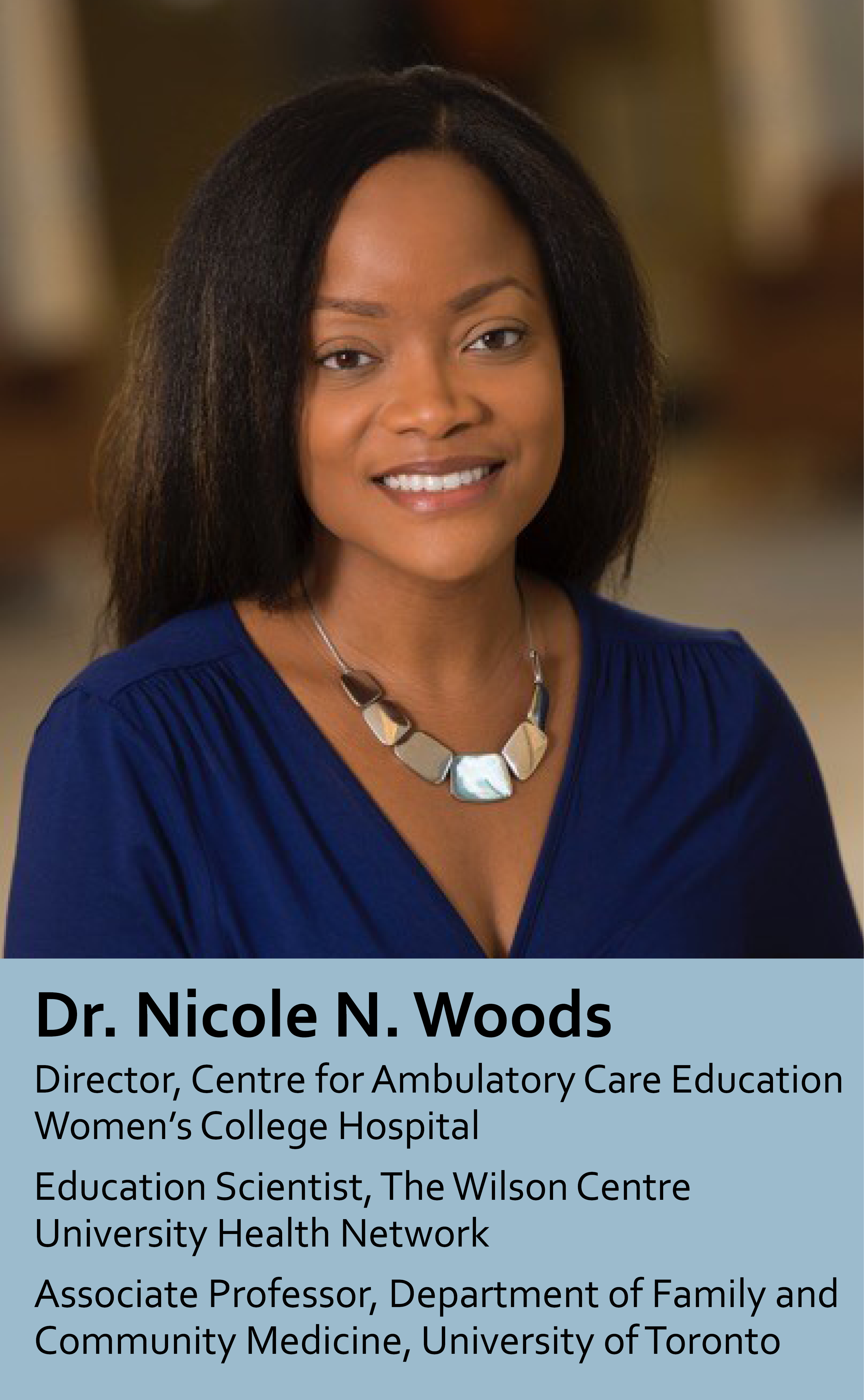Dr. Nicole N. Woods
Cognition before Curriculum: Insights on basic science integration

Date: Wednesday, September 21, 2016
Time: 12:00pm to 1:30pm (feel free to bring a bagged lunch)
Locations:
- DHCC 2267
- IRC 305
- PHRM 3321
- MSB 107
- RJH CA 120
- KGH CAC 237
- NHSC 9-374
- Surrey Central City (Manning Room 4109)
Abstract
With calls for better integration of basic and clinical sciences at all levels of health professions education come various efforts at curricular reform. This includes significant changes to the overall structure of medical curricula – shifting a way from the 2 + 2 training model that once was the dominant North American model. Instead, educators and administrators are investing significant resources and energy into the creation of new curricular models intended to increase integration. In this presentation, I will discuss a framework for understanding the structure and function of basic science knowledge in health professions education. I argue that a focus on the mental representation of diagnostic categories, the structure of basic science and clinical knowledge therein, and how both forms of knowledge are used by experts and novices to solve clinical problems will result in greater educational gains than a focus on curricular structure.
Biography
Dr. Nicole N. Woods, PhD, is Director of The Centre for Ambulatory Care Education (CACE), Faculty of Medicine, University of Toronto at Women’s College Hospital. Dr. Woods joined the University of Toronto in 2006 and leads a successful program of research in health professions education. Her work focuses on the role of biomedical knowledge in clinical reasoning and value of basic science training in the development of medical expertise. Applying principles of memory and learning to education in the health professions, her research explores 1) the design of instructional methods that integrate clinical knowledge and conceptual models of disease 2) the assessment of basic science knowledge and 3) understanding the changing role of biomedical knowledge throughout undergraduate, postgraduate and continuing education. Dr. Woods is currently Associate Professor in the Department of Family and Community Medicine and a Scientist at The Wilson Centre, Faculty of Medicine at University Health Network.
Accreditation:
The University of British Columbia Division of Continuing Professional Development (UBC CPD) is fully accredited by the Committee on Accreditation of Continuing Medical Education (CACME) to provide study credits for continuing medical education for physicians. This course has been reviewed and approved by the UBC Division of Continuing Professional Development. This Group Learning course meets the certification criteria of the College of Family Physicians of Canada and has been certified by UBC CPD for up to 1.5 Mainpro+ credits. This course is an Accredited Group Learning Activity eligible for up to 1.5 MOC Section 1 credits as defined by the Maintenance of Certification program of the Royal College of Physicians and Surgeons of Canada. Each physician should claim only those credits he/she actually spent in the activity.
